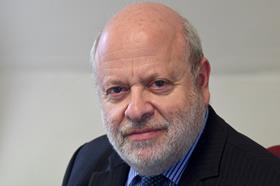The shape of ‘Global Britain’ is becoming clearer every day. An interesting feature is how strongly lawyers and legal services rank in its promotion. In this context, ‘Global Britain’ means two things: the outward story of our lawyers being able to practise in other countries, and the inward position covering the use by other countries’ companies and citizens of our domestic legal services.

On the outward side, the government deserves praise for the way that legal services are now routinely among the services that it promotes in free trade negotiations. For a long time, legal services were clubbed in with other professional services. But now we have been singled out for special attention.
A good example was the recent EU-UK Brexit agreement, in which legal services were one of the few services formally given their own section. The problem was that the reservations in the annexes at the back took away most of the substantive advances outlined in the front, meaning that there has been overall a considerable loss of access to EU markets by our lawyers.
Since then, the same promotion has happened in the free trade principles agreed between the UK and Australia, where there is an individual section devoted to guaranteeing cross-border trade in legal services.
And again the commitments agreed between the UK and India in their recent Enhanced Trade Partnership include legal services as one of the very few services picked out, with a ‘commitment to work to remove barriers in the Indian legal services sector preventing UK lawyers from practising international and foreign law in India’.
Both of these are still at the stage of principles, and I trust that eventual annexes of reservations will not again undermine the fine words and intentions at the front.
The UK government is also hoping to use the UK-Australia agreement as a stepping stone to join the Comprehensive and Progressive Agreement for Trans-Pacific Partnership (CPTPP), which has 11 countries as members, including Japan, Singapore, Canada and Australia. More significantly, the CPTPP has a Professional Services Annex with clauses aimed at the specific liberalisation of legal services.
That is the outward story. Overall, although much has been lost through Brexit in terms of legal services’ access to EU Member States, the government is now aggressively putting legal services at the heart of its future trade strategy.
Yet there is the inward story as well. Here the starting base is also good, with London as one of the leading legal centres. But the future contains many uncertainties.
For instance, arbitration centres elsewhere have eaten into London’s previously commanding lead as the arbitration centre of choice. In the most recent study conducted by White & Case in partnership with Queen Mary University, it is true that London remains at the top. But it now shares first place with Singapore, and in the context of the last three years its popularity is falling, as against Singapore - and other Asian centres such as Hong Kong, Beijing and Shanghai - which are rising rapidly. This is a physical illustration of the warning contained in the recent Law Society report on the future of legal services, where the rise in power of China and the Indo-Pacific area was seen as one of our main challenges.
What is now happening in arbitration may in future also be reflected in court litigation, with the establishment of (still insignificant) English language courts on the continent, and the more significant decision so far of the European Union to exclude us from the Lugano convention on the recognition and enforcement of civil and commercial judgments within the EU and EFTA.
There is one other threat to inward investment in legal services, which was raised again by a recent New York Times article. The title is clear: ‘The Power of Money: How Autocrats Use London to Strike Foes Worldwide’. A sentence near the start is clearer still: ‘the brutal politics of authoritarian countries like Russia and Kazakhstan have spilled into England’s legal system, with lawyers and private investigators in London raking in huge fees and engaging in questionable tactics in the service of autocratic foreign governments.’
I know that London remains a top centre for litigation. But more articles like this – and there was a leader a couple of months ago in the Financial Times along the same lines – may begin to undermine our reputation. We may soon be seen as a Wild West for laundering reputations and intimidating the more impecunious, regardless of the justice of the case. In other words, we should take steps to ensure our system is not seen to protect money over justice. To this end, the courts and the legal professions should act – a code of good practice? - before the government is forced to take action we may not like.
So, the inward is like the outward – good, but with severe challenges.
Jonathan Goldsmith is Law Society Council member for EU matters and a former secretary general of the Council of Bars and Law Societies of Europe. All views expressed are personal and are not made in his capacity as a Law Society Council member, nor on behalf of the Law Society
































2 Readers' comments